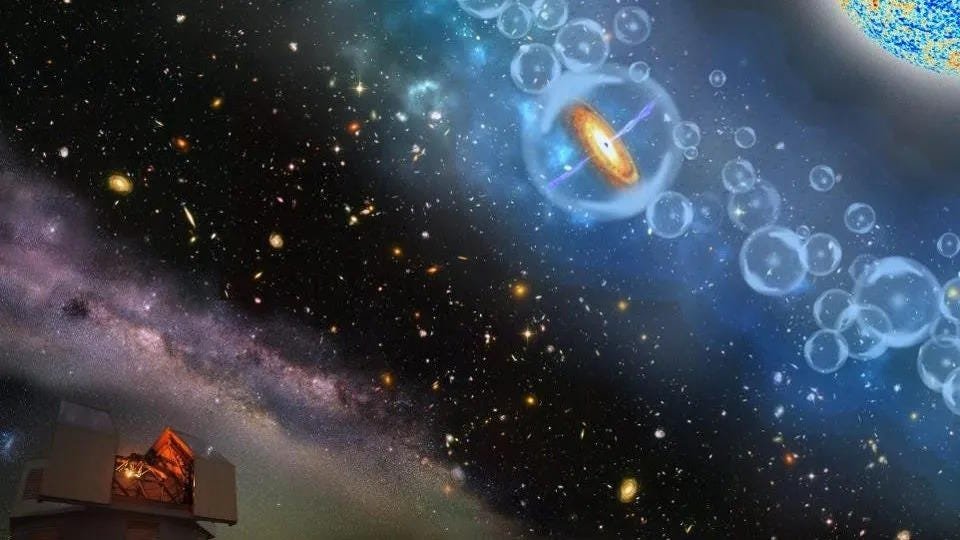Early on, only matter and radiation were important for the expanding Universe. After a few billion years, dark energy changed everything.
Imagine looking out at the Universe: beyond the stars of the Milky Way and the nearest galaxies to us, all the way to the most distant objects we can find. When we do exactly that, examining the galaxies, quasars, and other forms of matter that appear billions of light-years away, we’re seeing those objects not as they are today, but as they were in the distant past: back when their light was first emitted. At those earlier times, the Universe was hotter, denser, and filled with smaller, younger, less-evolved galaxies. The light we see from way back in our Universe’s history only arrives at our eyes after journeying across these vast cosmic distances, and only after that light has been stretched by the expanding fabric of space.
It’s precisely these early signals, and the process of how that light gets stretched to longer wavelengths — i.e., redshifted — more severely as we look to more and more distant objects, teach us how the Universe has expanded throughout its history. We learned, by collecting that data, that the Universe wasn’t just expanding, but that distant objects appear to speed up, faster and faster, as they mutually recede from one another: the discovery of the accelerated expansion of the Universe. That’s how we discovered dark energy and measured its properties, changing our conception of the Universe forever. Here’s what it was like when dark energy first took over the expanding Universe.
Imagine that you weren’t a human being, but rather an omniscient being that was not only around during the earliest moments of the hot Big Bang, but were capable of keeping track of two different locations at all times. One of those locations would correspond to the eventual location that our Milky Way would wind up in, today, while the other would correspond to a distant, disconnected galaxy that wasn’t gravitationally bound to anything in the Milky Way’s vicinity: not the Local Group, not…

